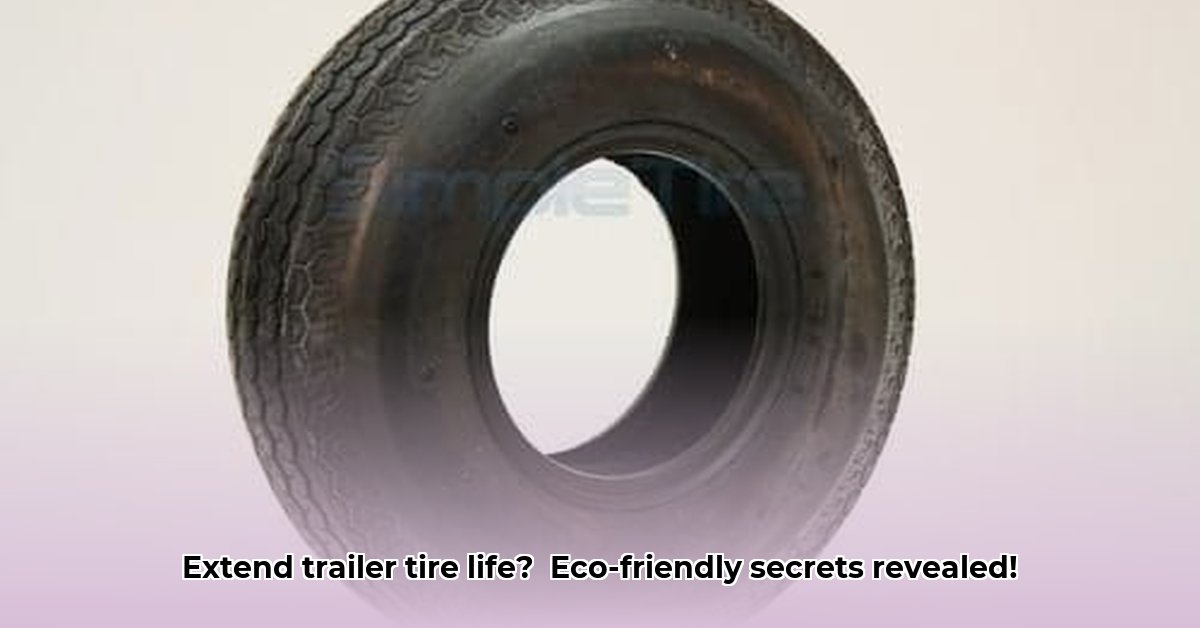
4.80-12 Trailer Tires: Maximizing Lifespan for Sustainable Farming
Running a sustainable farm demands attention to detail, including the often-overlooked but crucial component of tire maintenance. This guide focuses on extending the life of your 4.80-12 trailer tires from Tractor Supply, contributing to both cost savings and environmental responsibility. We'll cover everything from regular checks to responsible disposal, empowering you to keep your equipment running smoothly and efficiently. For more information on other tractor tire sizes, check out this helpful resource: 7-2-x16 Tractor Tires.
Understanding Your 4.80-12 Tractor Supply Tires
These tires are workhorses for smaller trailers, implements, and compact tractors, ideal for navigating confined farm spaces. While durable, proactive maintenance significantly extends their lifespan. Think of it like this: regular maintenance prevents costly, time-consuming repairs down the line. Isn't that better than facing an unexpected tire failure during peak harvest season?
Proactive Maintenance: Simple Steps for Significant Savings
Preventative maintenance is your best friend when it comes to tire longevity. Let's explore practical steps you can take today:
Regular Pressure Checks: Use a reliable gauge (available at Tractor Supply) to check pressure weekly. Underinflation accelerates wear, while overinflation can cause damage. Always refer to the sidewall of the tire for the recommended pressure. How often do you currently check your tire pressure?
Proper Inflation: Inflate tires slowly and evenly to avoid pressure surges. After inflation, wait an hour, then re-check the pressure; it may settle slightly. Doing this improves lifespan and reduces the risk of blowouts.
Routine Inspections: Regularly inspect tires for cuts, punctures, and unusual wear. Addressing small issues early prevents major problems and substantial repair costs. Have you noticed any wear patterns in your current tires?
Wheel Alignment: Poor alignment leads to uneven wear. If your equipment pulls to one side or tires show uneven wear, seek professional wheel alignment. This step alone can extend tire life dramatically.
Avoid Overloading: Exceeding weight limits stresses tires, leading to premature wear and potential damage. Never overload your equipment; always adhere to the stated load capacity. Are you aware of the load capacity rating for your 4.80-12 tires?
Off-Season Storage: During downtime, store tires in a cool, dry place, slightly inflated (slightly above normal pressure), away from direct sunlight to prevent cracking. Proper storage contributes to the overall longevity of the tire.
Troubleshooting Common Tire Issues
Problems will inevitably arise. Here's how to address common issues:
Punctures: Small punctures may be repairable with a tire plug kit. Larger punctures or sidewall damage generally require replacement.
Excessive Wear: This indicates a problem with pressure, overloading, or alignment. Address the root cause for improved results.
Uneven Wear: This is a direct result of misalignment. Professional wheel alignment is necessary to resolve this issue.
Choosing Replacement Tires: Investing in Longevity
When replacement becomes necessary, consider investing in higher-quality tires. While the initial cost is higher, they offer superior durability and a longer lifespan, resulting in significant long-term savings.
| Feature | High-Quality Tire | Standard Tire |
|---|---|---|
| Upfront Cost | Higher | Lower |
| Lifespan | Significantly Longer | Shorter |
| Load Capacity | Higher | Lower |
| Durability | More puncture and wear-resistant | Less puncture and wear-resistant |
| Tread Pattern | Often more aggressive (better traction) | Simpler design |
Sustainable Disposal: Minimizing Environmental Impact
At the end of their life cycle, responsibly dispose of old tires. Explore local recycling programs, or contact Tractor Supply for disposal recommendations. Proper disposal minimizes environmental impact and promotes responsible farming practices.
Conclusion: Prioritizing Proactive Tire Care
Proactive tire maintenance is more than just cost-effective; it's an essential component of sustainable farming. By implementing these simple steps, you'll significantly extend tire lifespan, improve efficiency, and contribute to a healthier environment. Remember, small actions today yield substantial benefits for your farm's future.